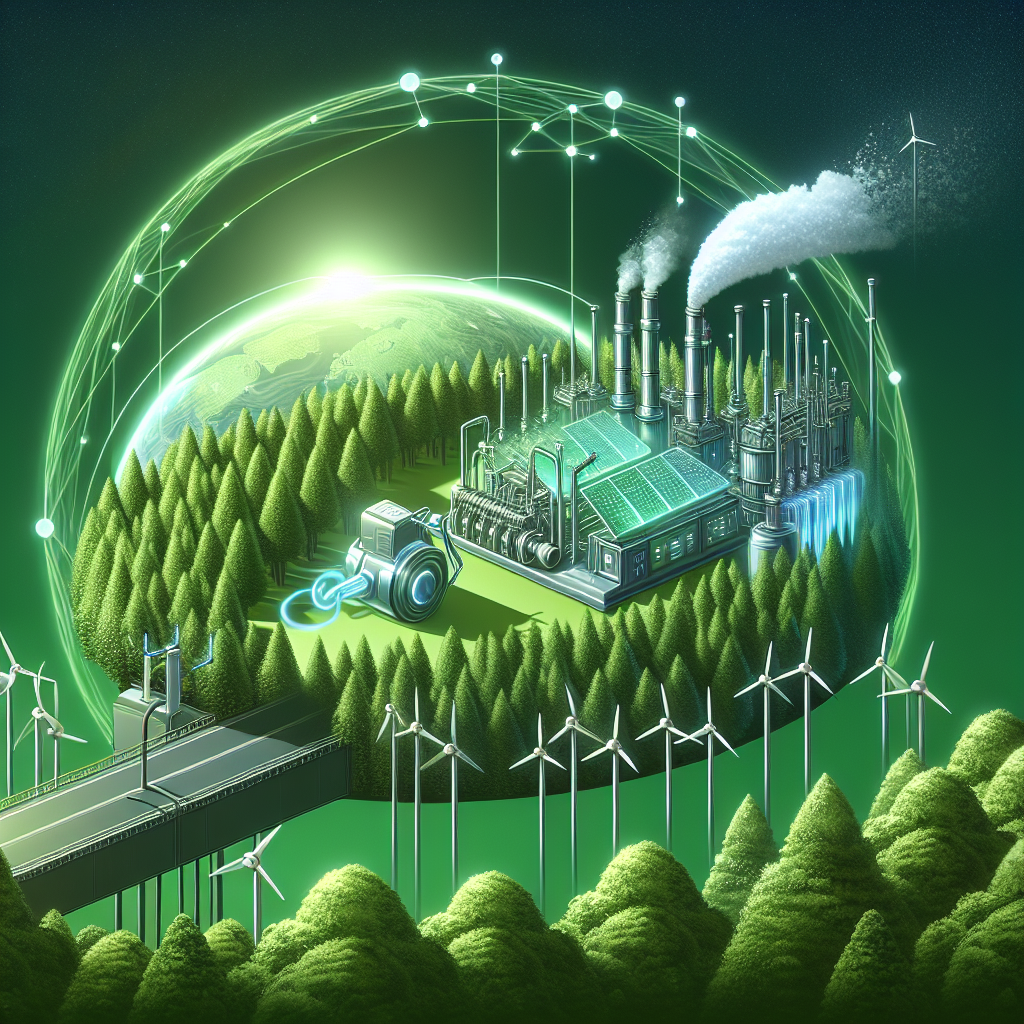The Future of Sustainability: AI’s Impact on Climate Change
Introduction
Climate change is one of the most pressing issues facing our planet today. With rising global temperatures, melting ice caps, and extreme weather events becoming more frequent, the need for sustainable solutions has never been more urgent. Artificial intelligence (AI) is emerging as a powerful tool in the fight against climate change, offering innovative solutions to help reduce carbon emissions and mitigate the impacts of global warming. In this article, we will explore the role of AI in promoting sustainability and its potential impact on the future of our planet.
How AI is shaping the future of sustainability
AI has the potential to revolutionize the way we approach sustainability by offering new ways to monitor, analyze, and address environmental challenges. Here are some ways in which AI is making a difference in the fight against climate change:
1. Energy efficiency: AI can help optimize energy consumption by analyzing data from smart meters, sensors, and other sources to identify patterns and trends in energy usage. By using AI-powered algorithms, companies and individuals can identify opportunities to reduce energy waste and improve efficiency, leading to lower carbon emissions and cost savings.
2. Renewable energy: AI can also help maximize the efficiency of renewable energy sources like solar and wind power. By using AI to predict weather patterns and optimize energy production, renewable energy systems can generate more power and reduce reliance on fossil fuels.
3. Climate modeling: AI can improve climate modeling by analyzing vast amounts of data from satellites, sensors, and other sources to predict future climate trends more accurately. By using AI-powered models, scientists can better understand the impacts of climate change and develop more effective strategies to mitigate its effects.
4. Agriculture: AI can help farmers optimize crop production by analyzing soil quality, weather patterns, and other factors to improve yields and reduce environmental impact. By using AI-powered tools, farmers can make more informed decisions about when and where to plant crops, leading to more sustainable agricultural practices.
5. Waste management: AI can also help improve waste management by analyzing data from sensors and other sources to optimize recycling and waste disposal processes. By using AI-powered algorithms, companies and municipalities can reduce waste and improve recycling rates, leading to a cleaner environment and reduced carbon emissions.
FAQs about AI and sustainability
Q: How can AI help reduce carbon emissions?
A: AI can help reduce carbon emissions by optimizing energy consumption, improving renewable energy production, and promoting sustainable practices in industries like agriculture and waste management. By using AI-powered tools and algorithms, companies and individuals can identify opportunities to reduce their carbon footprint and mitigate the impacts of climate change.
Q: What are some examples of AI-powered sustainability initiatives?
A: Some examples of AI-powered sustainability initiatives include smart energy grids, predictive maintenance for renewable energy systems, precision agriculture, and waste management optimization. These initiatives use AI to analyze data, identify patterns and trends, and make informed decisions to promote sustainability and reduce environmental impact.
Q: How can individuals contribute to AI-powered sustainability efforts?
A: Individuals can contribute to AI-powered sustainability efforts by adopting energy-efficient practices, supporting renewable energy initiatives, and advocating for sustainable policies in their communities. By making small changes in their daily lives and supporting sustainable initiatives, individuals can help promote a more sustainable future for our planet.
Q: What are some challenges facing AI-powered sustainability efforts?
A: Some challenges facing AI-powered sustainability efforts include data privacy concerns, ethical considerations, and the need for regulatory frameworks to ensure responsible AI deployment. As AI technologies continue to evolve, it is important to address these challenges and work towards a more sustainable future that benefits both people and the planet.
Conclusion
AI is poised to play a key role in shaping the future of sustainability by offering innovative solutions to address climate change and promote environmental conservation. By leveraging the power of AI to optimize energy consumption, improve renewable energy production, and enhance climate modeling, we can work towards a more sustainable future for our planet. As we continue to explore the potential of AI in promoting sustainability, it is crucial to address challenges and ensure responsible deployment of AI technologies to achieve long-term environmental benefits. By working together to harness the power of AI for good, we can make a positive impact on the future of our planet and create a more sustainable world for generations to come.
In conclusion, the future of sustainability looks promising with the help of AI technology. By harnessing the power of AI to address climate change and promote environmental conservation, we can work towards a more sustainable future for our planet. By embracing AI-powered solutions and working together to address challenges, we can create a more sustainable world for generations to come.

